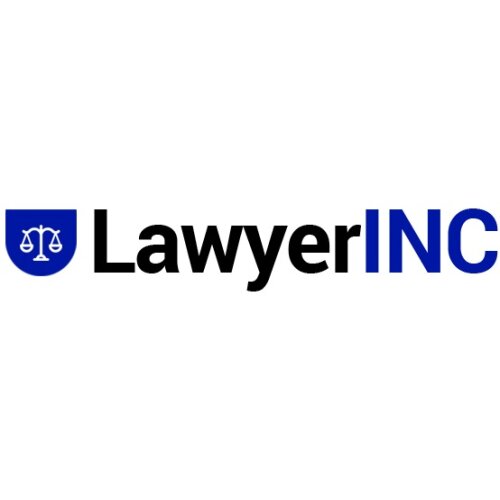Best Mining Law Lawyers in Noida
Share your needs with us, get contacted by law firms.
Free. Takes 2 min.
List of the best lawyers in Noida, India
About Mining Law in Noida, India
Mining Law in Noida, India, refers to the legal framework that governs the exploration, extraction, and management of mineral resources within the region. While Noida itself is primarily known as an urban, industrial, and commercial hub, it falls under the jurisdiction of Uttar Pradesh state laws and applicable central mining legislations. Mining activities, including those related to sand, earth, and other minor minerals, are regulated to ensure environmental protection, sustainable development, and compliance with safety standards. The law includes permits, licenses, environmental clearances, and rehabilitation requirements, making it essential for individuals or businesses involved in mining or related activities to be aware of their legal obligations.
Why You May Need a Lawyer
Seeking legal assistance for Mining Law matters in Noida is often necessary due to the complexity of regulations and the involvement of multiple authorities. Common situations where a lawyer can help include:
- Application and processing of mining leases or licenses - Environmental clearance and compliance issues - Disputes over land use for mining purposes - Handling notices or actions from regulatory bodies - Acquisition or transfer of mining rights - Compliance with safety and labor regulations at mining sites - Responding to allegations of illegal mining - Landowner consent and local community engagement - Rehabilitation and reclamation obligations after mining - Taxation and royalty payment issues
Local Laws Overview
Mining activities in Noida are subject to both central and state laws. At the national level, the Mines and Minerals (Development and Regulation) Act, 1957 (MMDR Act) is the primary law regulating mining in India, supplemented by the Mineral Concession Rules and Mineral Conservation and Development Rules. Uttar Pradesh has its own mining policy and rules, such as the Uttar Pradesh Minor Minerals (Concession) Rules, 1963, which provide for the grant of mining leases for minor minerals.
Mining operations typically require various clearances:
- Mining lease or license from the Department of Geology and Mining, Uttar Pradesh - Environmental clearance, particularly for activities near the Yamuna and Hindon rivers - Consent from pollution control authorities - Adherence to safety and labor laws for worker protection - Compliance with land acquisition and local panchayat regulations
Violations, such as illegal sand mining or mining without permits, can result in significant penalties, including seizure of machinery, fines, and criminal action.
Frequently Asked Questions
What minerals can be mined legally in Noida?
Noida primarily deals with minor minerals like sand, earth, and bricks. The mining of major minerals is subject to stricter central guidelines and is less common in the urban Noida region.
Who grants mining licenses in Noida?
Licenses and permits for mining activities are granted by the Department of Geology and Mining, Uttar Pradesh, subject to compliance with central and state laws and necessary environmental clearances.
Is environmental clearance always mandatory for mining?
Yes, for most mining projects, especially those near rivers or in sensitive areas, environmental clearance is mandatory before activities can commence.
Can a private landowner conduct mining on their property?
Private mining is subject to government approval. Even landowners must obtain the relevant lease, comply with regulations, and secure clearances before extracting minerals.
What are common penalties for illegal mining?
Penalties can include fines, confiscation of equipment, closure of the site, and, in serious cases, criminal prosecution.
Are there restrictions on transporting mined minerals?
Yes, transport requires valid documentation and adherence to restrictions on times, routes, and quantity, as specified by local authorities.
How can mining leases be transferred?
Leases can be transferred only with the prior approval of the competent authority and upon fulfillment of prescribed conditions.
What role do local communities play in mining approvals?
Local communities may be involved in the consent process, especially for land use or when mining affects communal areas. Their approval may be sought in accordance with local regulations.
What happens after a mining lease expires?
Once a mining lease expires, the holder must undertake rehabilitation as per law and restore the mined area. Renewal is subject to compliance review and approvals.
How to report illegal mining in Noida?
Individuals can report illegal mining to the District Magistrate, local police, or the Department of Geology and Mining, Uttar Pradesh. Providing evidence and location details helps initiate prompt action.
Additional Resources
- Department of Geology and Mining, Government of Uttar Pradesh - Uttar Pradesh Pollution Control Board - Ministry of Mines, Government of India - District Magistrate Office, Gautam Buddh Nagar - Environmental advocacy organizations active in Uttar Pradesh - State and local Bar Associations for referrals to legal practitioners specialized in mining matters
Next Steps
If you require legal assistance in Mining Law in Noida, begin by gathering all relevant documents, such as lease agreements, notices, correspondence, and environmental clearances. Consider consulting with a local lawyer who specializes in mining and environmental law to review your case and suggest a suitable course of action. You can approach the District Legal Services Authority for legal aid if you qualify. If your issue involves regulatory violations or disputes with authorities or communities, acting promptly with the guidance of a legal expert will improve your chances of a favorable outcome while ensuring compliance with applicable laws and procedures.
Lawzana helps you find the best lawyers and law firms in Noida through a curated and pre-screened list of qualified legal professionals. Our platform offers rankings and detailed profiles of attorneys and law firms, allowing you to compare based on practice areas, including Mining Law, experience, and client feedback.
Each profile includes a description of the firm's areas of practice, client reviews, team members and partners, year of establishment, spoken languages, office locations, contact information, social media presence, and any published articles or resources. Most firms on our platform speak English and are experienced in both local and international legal matters.
Get a quote from top-rated law firms in Noida, India — quickly, securely, and without unnecessary hassle.
Disclaimer:
The information provided on this page is for general informational purposes only and does not constitute legal advice. While we strive to ensure the accuracy and relevance of the content, legal information may change over time, and interpretations of the law can vary. You should always consult with a qualified legal professional for advice specific to your situation.
We disclaim all liability for actions taken or not taken based on the content of this page. If you believe any information is incorrect or outdated, please contact us, and we will review and update it where appropriate.









